Bali is experiencing a remarkable transformation. As Bali emerges from the challenges of recent years, a new narrative is taking shape—one that positions environmental sustainability and innovative eco-friendly practices at the heart of its tourism renaissance. This shift represents more than just a trend; it’s a fundamental reimagining of what tropical paradise can and should look like in the 21st century.
Bali’s Sustainable Tourism Impact Matrix
| Impact Category |
Details |
| 🏨 ACCOMMODATION INNOVATIONS |
|
| Key Technologies |
• Bamboo architecture with zero synthetic materials
• Solar power systems achieving 80-100% energy independence
• Advanced rainwater harvesting and greywater recycling<br>• Organic gardens integrated into property landscapes |
| Environmental Results |
• 65% reduction in carbon footprint per guest night
• 40% decrease in water consumption
• Zero construction waste to landfills |
| Community Impact |
• 300+ local jobs in green construction
• Traditional craftsmen earning 150% higher wages
• 50+ villages participating in organic supply chains |
|
|
| 🚗 TRANSPORTATION REVOLUTION |
|
| Green Mobility Solutions |
• Electric scooter networks with 200+ charging stations
• 500km of dedicated cycling paths
• Solar-powered boat fleets for marine tours
• Traditional transport integration (horse carts, sailing boats) |
| Environmental Results |
• 45% reduction in transport-related emissions
• Elimination of marine noise pollution in protected areas
• Air quality improvement in tourist zones |
| Economic Benefits |
• 1,500+ new jobs in sustainable transport sector
• Local manufacturing of electric vehicle components
• Tourism revenue increase of 25% in cycling tour operators |
|
|
| 🍽️ CULINARY TRANSFORMATION |
|
| Sustainable Gastronomy |
• Zero-waste cooking in 150+ restaurants
• Vertical farming systems producing 30% of restaurant herbs
• Plant-based cuisine representing 40% of menu options
• Traditional fermentation workshops for tourists |
| Environmental Impact |
• 60% reduction in food waste across participating venues
• 80% decrease in food transportation emissions
• Water usage reduction of 35% through efficient farming |
| Cultural Preservation |
• Revival of 20+ traditional cooking techniques
• Support for 500+ organic farmers
• Women-led culinary enterprises increased by 200% |
|
|
| 🐠 MARINE CONSERVATION SUCCESS |
|
| Conservation Programs |
• 15 coral restoration sites with 85% survival rates
• Sea turtle nesting sites increased by 40%
• Mangrove restoration covering 500 hectares
• Whale watching with strict sustainability protocols |
| Ecosystem Recovery |
• Marine biodiversity increased by 60% in protected areas
• Coral coverage expanded from 30% to 75%
• Fish population recovery of 120% in marine parks |
| Tourism Integration |
• 50,000+ tourists participating annually in conservation
• $2M generated for marine protection through eco-tours
• 100+ certified marine guides employed |
|
|
| 🎭 CULTURAL SUSTAINABILITY |
|
| Heritage Preservation |
• 25 traditional villages offering authentic experiences
• Sacred site conservation funded by tourism revenue
• Traditional craft workshops supporting 800+ artisans
• Language immersion programs in 10 local dialects |
| Economic Empowerment |
• Community-based tourism income increased 300%
• Women’s craft cooperatives expanded to 50+ groups
• Young people retention in villages increased 45% |
| Cultural Continuity |
• Traditional knowledge documented in 5 languages
• Ancient agricultural practices preserved in 30+ locations
• Ceremonial traditions maintained with tourist respect protocols |
|
|
| 📱 TECHNOLOGY INTEGRATION |
|
| Smart Sustainability |
• Real-time environmental monitoring at 100+ locations
• Carbon footprint tracking apps used by 80% of visitors
• AR/VR education programs in 6 languages
• Blockchain-verified sustainability certifications |
| Data-Driven Conservation |
• AI optimization reducing resort energy use by 30%
• Predictive analytics preventing overtourism in sensitive areas
• Digital platforms connecting tourists with local conservation projects |
| Innovation Leadership |
• First destination with comprehensive sustainability scoring
• Pioneer in tourism carbon credit systems
• Model for 15+ other destinations globally |
The Green Revolution in Indonesian Tourism
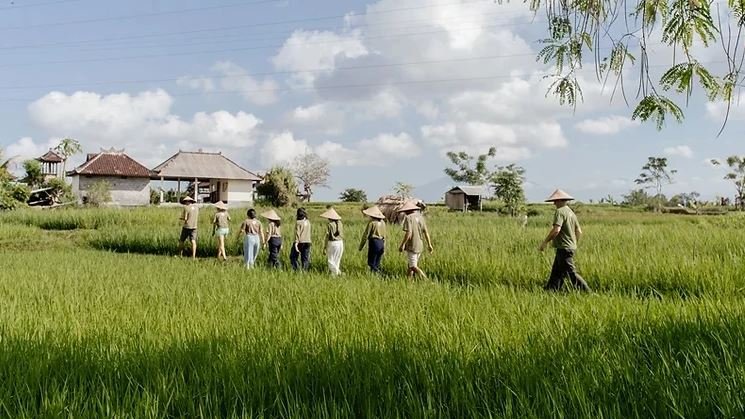
Bali’s tourism industry, long celebrated for its pristine beaches, ancient temples, and vibrant culture, is now pioneering a sustainable approach that other destinations worldwide are beginning to emulate. The island’s commitment to eco-friendly innovations has become a powerful magnet for a new generation of conscious travelers who seek meaningful experiences that align with their environmental values.
The transformation didn’t happen overnight. Following the global tourism disruption, Bali’s stakeholders—from government officials to local entrepreneurs—recognized an unprecedented opportunity to rebuild their industry with sustainability as the cornerstone. This vision has materialized into tangible innovations that are reshaping the tourist experience while preserving the natural beauty that makes Bali so enchanting.
Local communities have embraced this green revolution with remarkable enthusiasm. Traditional villages are now showcasing sustainable farming practices, artisans are creating eco-friendly crafts from recycled materials, and hospitality providers are implementing cutting-edge environmental technologies. This grassroots commitment has created an authentic sustainability movement that resonates with visitors seeking genuine experiences.
Sustainable Accommodations Leading the Way
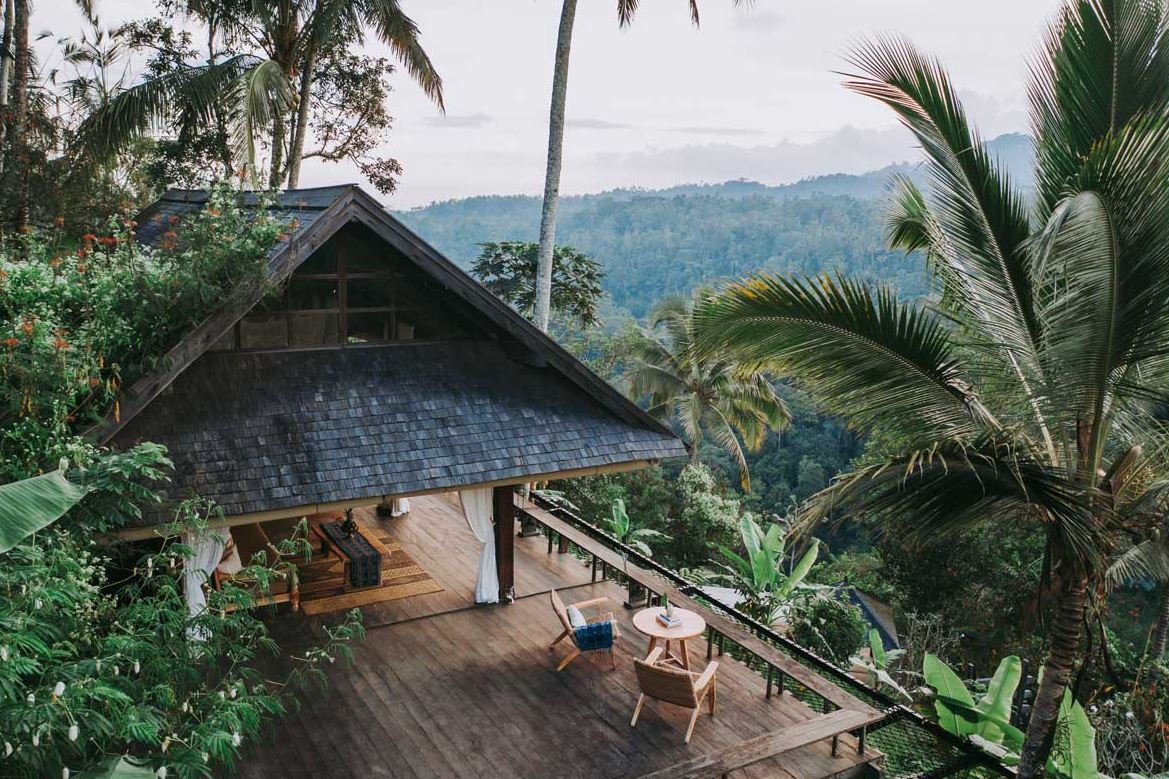
The hospitality sector has emerged as a leader in Bali’s eco-friendly tourism revival. Innovative resorts and boutique hotels are setting new standards for sustainable luxury, proving that environmental responsibility and exceptional guest experiences can coexist seamlessly.
Bamboo architecture has experienced a renaissance, with stunning properties showcasing the versatility and sustainability of this rapidly renewable resource. These architectural marvels not only minimize environmental impact but also offer guests unique aesthetic experiences that celebrate local craftsmanship and natural materials. The intricate bamboo structures, often built without nails or synthetic materials, demonstrate how traditional building techniques can meet modern sustainability standards.
Solar power systems have become increasingly sophisticated across Bali’s accommodation sector. Properties are installing comprehensive renewable energy systems that power everything from guest rooms to spa facilities. Some resorts have achieved complete energy independence, while others contribute excess power back to local grids, creating positive environmental impacts beyond their immediate operations.
Water conservation technologies represent another area of significant innovation. Hotels are implementing advanced rainwater harvesting systems, greywater recycling programs, and natural wastewater treatment facilities using constructed wetlands. These systems not only reduce environmental impact but also create beautiful landscape features that enhance the guest experience.
Organic gardens and farm-to-table dining programs have become standard features at many properties. Guests can participate in harvesting activities, learn about permaculture techniques, and enjoy meals prepared with ingredients grown on-site. This direct connection between food source and dining experience adds educational value while reducing carbon footprints associated with food transportation.
Community-Driven Conservation Initiatives
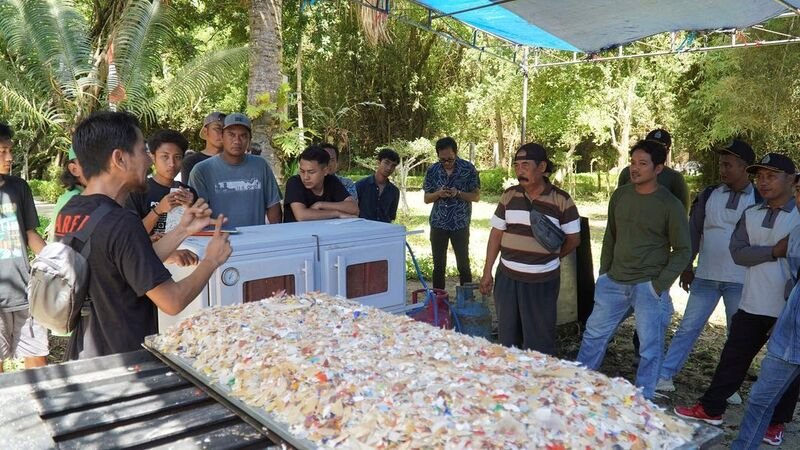
Perhaps the most compelling aspect of Bali’s sustainable tourism revival is the active involvement of local communities in conservation efforts. These grassroots initiatives demonstrate how tourism can become a force for environmental protection while creating meaningful economic opportunities for residents.
Traditional villages are opening their doors to visitors interested in learning about sustainable living practices. Guests can participate in organic rice farming, traditional composting methods, and natural dyeing techniques using indigenous plants. These experiences provide authentic cultural immersion while generating income for communities that have practiced sustainable living for generations.
Coral reef restoration projects have become major tourist attractions. Visitors can participate in coral planting activities, learn about marine ecosystem preservation, and witness the remarkable regeneration of damaged reef systems. These programs combine environmental education with hands-on conservation work, creating memorable experiences that have lasting positive impacts.
Beach cleanup initiatives have evolved into comprehensive waste management education programs. Tourists join local volunteers in collecting marine debris while learning about plastic pollution’s impact on ocean ecosystems. Many programs include workshops on reducing plastic consumption and creating useful items from collected waste materials.
Mangrove restoration projects offer another avenue for eco-tourism engagement. Visitors can plant mangrove seedlings while learning about these critical ecosystems’ role in coastal protection, carbon sequestration, and marine biodiversity conservation. The visual impact of healthy mangrove forests provides stunning natural backdrops for photography while delivering important environmental benefits.
Innovative Transportation Solutions
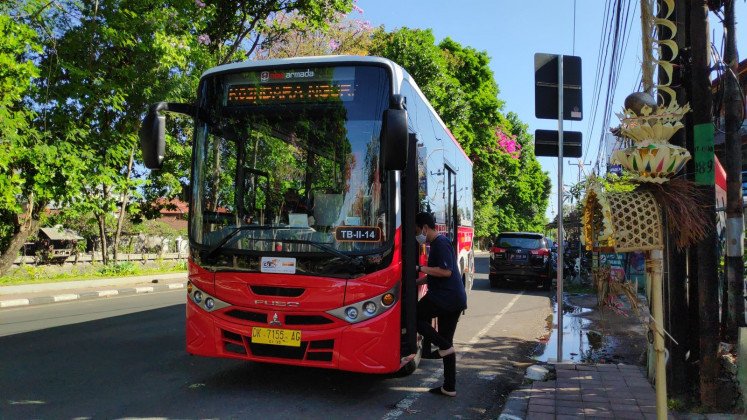
Bali’s commitment to sustainable tourism extends to innovative transportation solutions that reduce environmental impact while enhancing visitor experiences. The island is pioneering various approaches to eco-friendly mobility that other destinations are beginning to adopt.
Electric vehicle adoption has accelerated significantly across the tourism sector. Electric scooter rental programs allow visitors to explore the island with minimal environmental impact while enjoying the freedom and flexibility of independent transportation. Charging stations powered by renewable energy are being installed at hotels, restaurants, and popular tourist destinations.
Bicycle tourism infrastructure has expanded dramatically, with dedicated cycling paths connecting major attractions and scenic routes. Professional guide services offer cycling tours that showcase Bali’s natural beauty while providing excellent exercise and minimal environmental impact. These tours often include stops at local organic farms, traditional craft workshops, and conservation sites.
Sustainable boat tour operators are implementing electric and hybrid propulsion systems for marine excursions. These quiet, emission-free vessels provide superior wildlife viewing opportunities while protecting marine environments from noise and air pollution. Solar-powered boats are becoming increasingly common for snorkeling and diving trips.
Traditional transportation methods are experiencing renewed interest as sustainable alternatives. Horse-drawn carts in rural areas, traditional sailing boats for coastal excursions, and walking tours led by knowledgeable local guides offer authentic experiences with minimal environmental impact.
Technology Integration for Environmental Monitoring
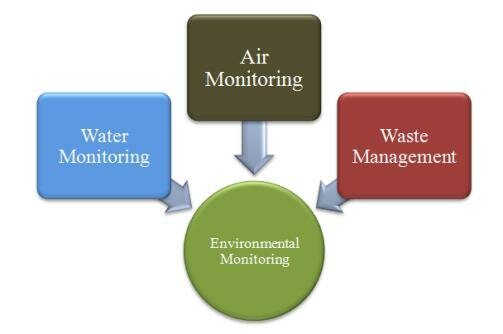
Advanced technology integration has become a hallmark of Bali’s sustainable tourism approach. Innovative monitoring systems and digital platforms are helping visitors understand and minimize their environmental impact while maximizing their appreciation of natural systems.
Smart environmental monitoring systems track air quality, water quality, and biodiversity indicators in real-time. Visitors can access this information through mobile applications, making informed decisions about activities and destinations based on current environmental conditions. This transparency builds trust and demonstrates the island’s commitment to environmental protection.
Digital carbon footprint tracking allows tourists to monitor and offset their environmental impact throughout their stay. Integrated platforms calculate emissions from transportation, accommodation, and activities while providing opportunities to support local conservation projects as offset mechanisms.
Augmented reality applications enhance environmental education by providing detailed information about local ecosystems, wildlife, and conservation efforts. Visitors can point their smartphones at plants, animals, or geographic features to receive instant educational content, creating immersive learning experiences that complement traditional tourism activities.
Virtual reality experiences allow visitors to explore sensitive ecosystems without physical impact. Underwater VR tours showcase coral reefs and marine life, while forest VR experiences highlight biodiversity and conservation efforts. These technologies provide access to natural wonders while protecting fragile environments from overvisitation.
Culinary Innovation and Sustainable Gastronomy

Bali’s culinary scene has embraced sustainability as a core principle, creating innovative dining experiences that celebrate local ingredients while minimizing environmental impact. This gastronomic revolution has become a major draw for food-conscious travelers seeking authentic and responsible dining experiences.
Zero-waste cooking techniques have gained popularity among innovative chefs who transform traditionally discarded ingredients into culinary masterpieces. Root-to-leaf cooking utilizes entire vegetables, while nose-to-tail approaches minimize meat waste. These techniques not only reduce environmental impact but also introduce visitors to new flavors and cooking methods.
Vertical farming systems are being integrated into restaurant operations, allowing establishments to grow fresh herbs, microgreens, and vegetables on-site. These soilless growing systems use minimal water and space while providing the freshest possible ingredients. Diners can observe the growing process and harvest their own garnishes, creating interactive dining experiences.
Fermentation and preservation workshops teach visitors traditional Indonesian food preservation techniques while reducing food waste. Guests learn to make tempeh, fermented vegetables, and traditional condiments using local ingredients and time-honored methods. These skills provide practical knowledge that visitors can apply in their home countries.
Plant-based cuisine innovation has expanded significantly, with chefs creating sophisticated dishes that showcase the diversity and flavor potential of Indonesian plant ingredients. These offerings cater to growing demand for sustainable protein sources while introducing visitors to traditional plant-based dishes and modern interpretations.
Marine Conservation as Tourism Product
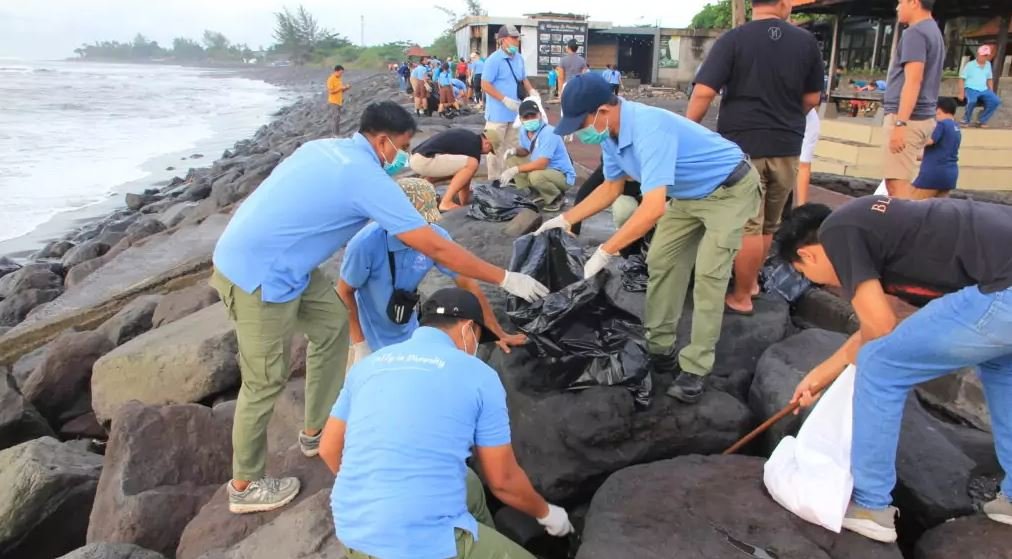
Bali’s marine conservation efforts have evolved into compelling tourism products that generate revenue for protection efforts while providing unforgettable experiences for visitors. This model demonstrates how conservation can become economically sustainable through tourism integration.
Marine protected area tours offer visitors opportunities to witness conservation success stories firsthand. Professional guides explain ecosystem restoration efforts while showcasing healthy coral reefs, diverse fish populations, and successful species recovery programs. These educational tours generate funding for ongoing conservation work while creating awareness among international visitors.
Sea turtle conservation programs invite tourists to participate in nest monitoring, hatchling releases, and adult turtle tracking activities. These emotional experiences create strong connections between visitors and marine conservation while generating vital funding for protection efforts. Night patrols during nesting season provide unique wildlife viewing opportunities.
Whale and dolphin watching tours operate under strict sustainability guidelines that prioritize animal welfare over tourist entertainment. Certified operators maintain appropriate distances, limit group sizes, and provide educational content about marine mammal conservation. These responsible practices ensure that tourism supports rather than threatens marine wildlife.
Underwater photography workshops combine artistic education with marine conservation awareness. Professional photographers teach technical skills while emphasizing the importance of responsible underwater behavior and marine ecosystem protection. Participants often become advocates for ocean conservation after witnessing marine beauty firsthand.
Cultural Preservation Through Sustainable Tourism
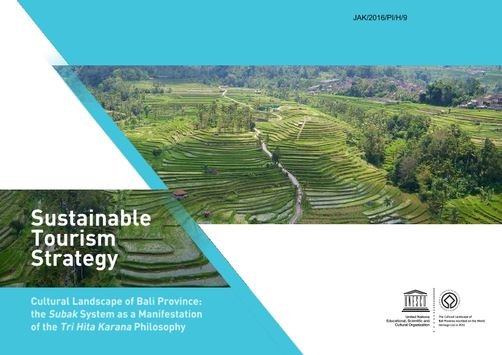
The integration of cultural preservation with sustainable tourism practices has created unique opportunities for visitors to engage with authentic Balinese traditions while supporting community development and environmental protection.
Traditional craft workshops using sustainable materials provide income for artisans while preserving ancient skills and techniques. Visitors learn basket weaving using indigenous plants, natural textile dyeing using local flowers and leaves, and wood carving using sustainably harvested materials. These workshops maintain cultural traditions while creating economic opportunities for local communities.
Sacred site conservation programs allow visitors to participate in temple maintenance and ceremony preparation while learning about Balinese spiritual traditions. These programs generate funding for historic preservation while providing authentic cultural experiences that respect religious significance and community values.
Traditional agriculture demonstrations showcase sustainable farming methods that have been practiced for centuries. Visitors observe subak irrigation systems, organic pest control methods, and crop rotation techniques that maintain soil health and biodiversity. These educational experiences highlight the connection between cultural practices and environmental sustainability.
Language immersion programs combined with environmental education create comprehensive cultural experiences. Visitors learn Balinese language while participating in conservation activities, creating deeper cultural connections and better understanding of local environmental perspectives.
Economic Impact and Community Benefits
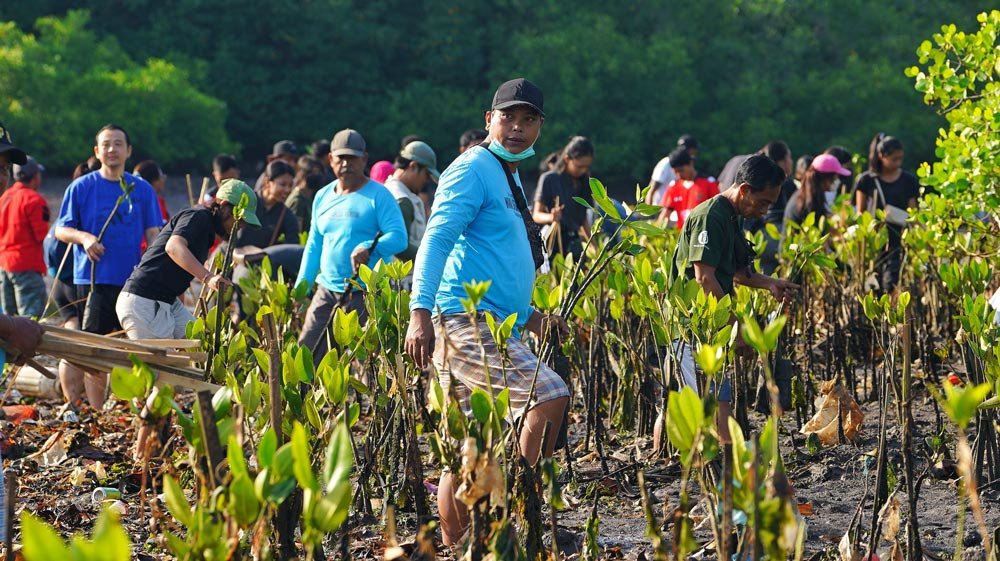
The sustainable tourism model has generated significant economic benefits for local communities while creating more resilient and diversified income sources. This economic success demonstrates that environmental responsibility and financial prosperity can be mutually reinforcing.
Local employment opportunities have expanded significantly as sustainable tourism operations require specialized skills and local knowledge. Community members have become certified guides, conservation specialists, organic farmers, and craft instructors. These positions often provide higher and more stable incomes than traditional tourism jobs.
Small business development has flourished as visitors seek authentic and sustainable products and services. Local entrepreneurs have created eco-friendly souvenir businesses, organic food production operations, and sustainable transportation services. These enterprises keep tourism revenue within local communities while reducing environmental impact.
Education and training programs have enhanced local capacity for sustainable tourism development. Community members receive certification in areas such as permaculture, renewable energy systems, waste management, and hospitality services. These skills create long-term career opportunities and community resilience.
Women’s empowerment has been a significant outcome of sustainable tourism development. Many eco-tourism initiatives are led by women who have developed successful businesses in areas such as organic farming, traditional crafts, and hospitality services. These opportunities provide economic independence and leadership roles within communities.
Challenges and Future Developments
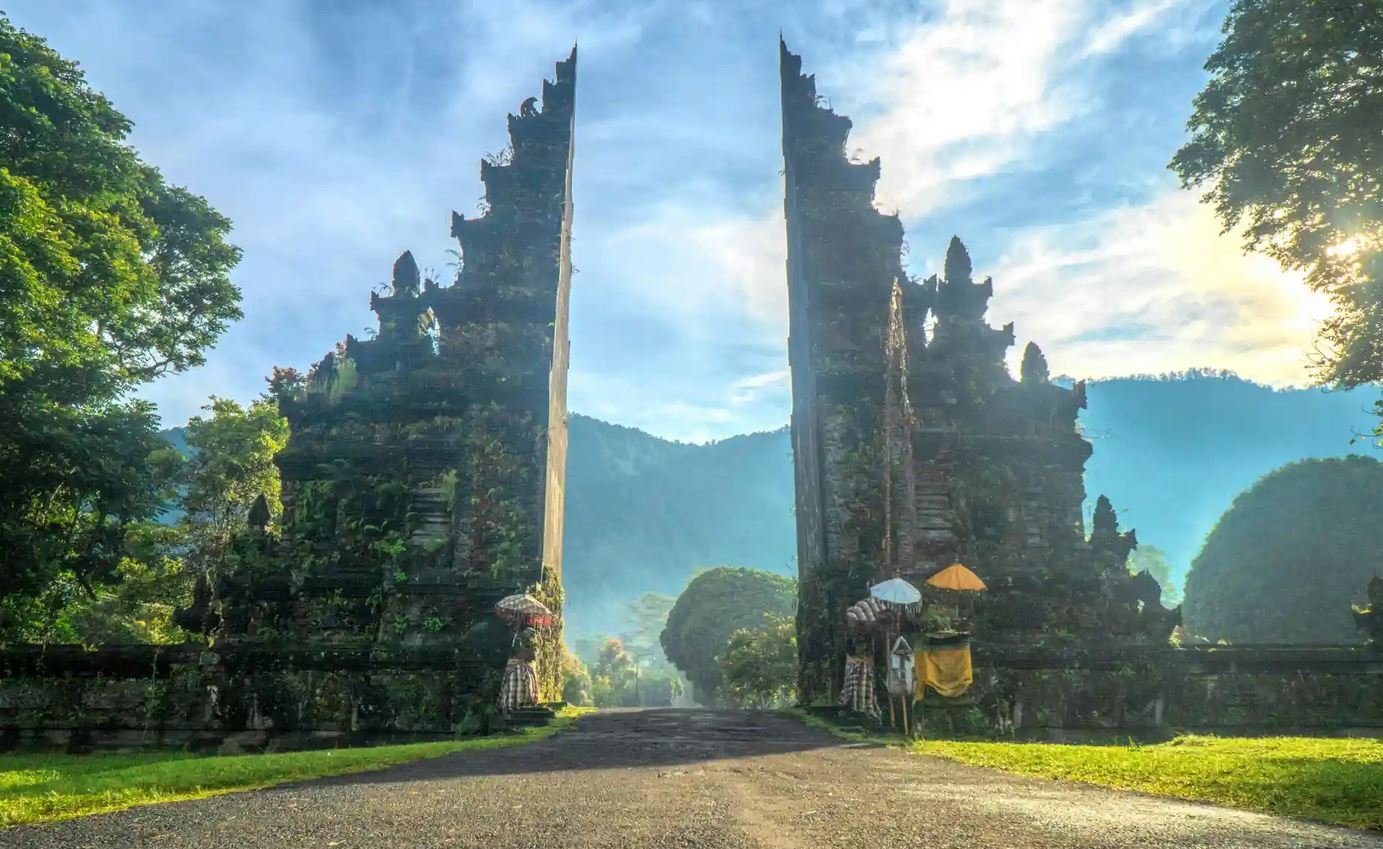
Despite remarkable success, Bali’s sustainable tourism revolution faces ongoing challenges that require continued innovation and commitment from all stakeholders. Addressing these challenges is essential for maintaining momentum and achieving long-term sustainability goals.
Infrastructure development must balance accessibility with environmental protection. Expanding renewable energy systems, improving waste management facilities, and developing sustainable transportation networks require significant investment and careful planning to avoid environmental degradation.
Visitor education remains crucial for sustainable tourism success. Continuous efforts are needed to inform tourists about responsible behavior, environmental sensitivity, and cultural respect. Digital platforms, multilingual resources, and interactive educational experiences help communicate these important messages effectively.
Climate change adaptation requires ongoing innovation and flexibility. Rising sea levels, changing weather patterns, and increased extreme weather events challenge tourism infrastructure and natural attractions. Adaptive management strategies and resilient design principles are essential for long-term sustainability.
Scalability concerns arise as sustainable tourism practices must accommodate growing visitor numbers without compromising environmental or cultural integrity. Innovative solutions are needed to manage visitor flows, distribute tourism benefits broadly, and maintain the authentic experiences that attract conscious travelers.
Looking Forward: The Future of Sustainable Tourism
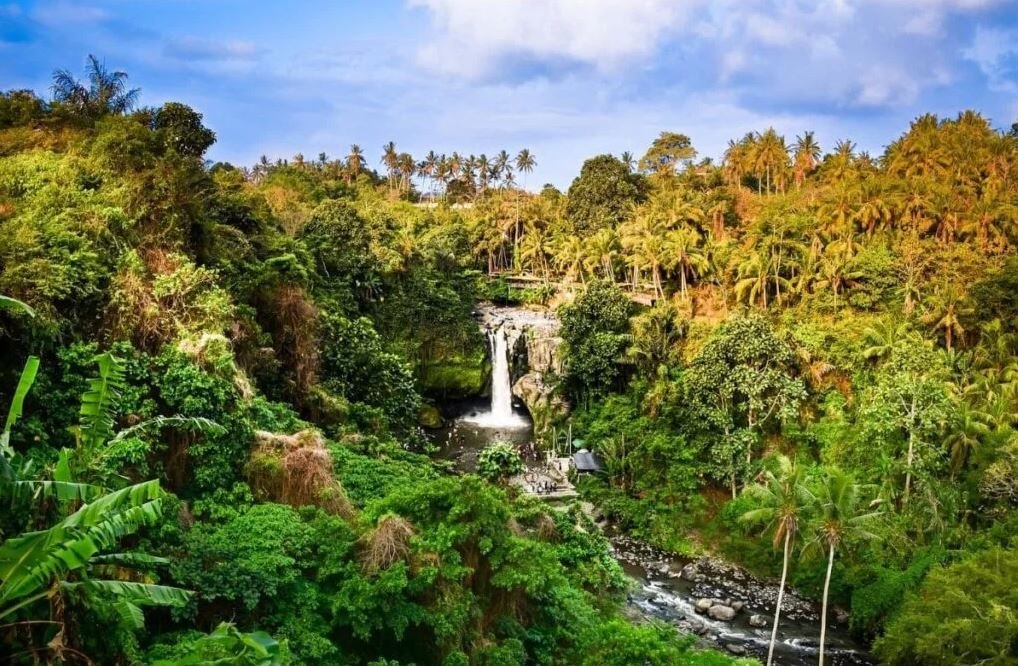
Bali’s sustainable tourism revolution represents a glimpse into the future of global travel, where environmental responsibility, cultural authenticity, and economic prosperity converge to create transformative experiences for visitors and communities alike.
The island’s innovations in sustainable hospitality, community-based conservation, and eco-friendly technology are being studied and replicated by destinations worldwide. Bali has become a living laboratory for sustainable tourism practices, demonstrating that environmental protection and tourism development can be mutually beneficial.
Emerging technologies continue to enhance sustainable tourism possibilities. Artificial intelligence systems optimize resource usage, blockchain technology ensures transparency in sustainability claims, and Internet of Things sensors provide real-time environmental monitoring. These technological advances support evidence-based decision-making and continuous improvement in sustainability practices.
International collaboration and knowledge sharing are expanding Bali’s influence on global tourism development. The island’s experiences are being shared through academic research, professional conferences, and international development programs. This knowledge transfer helps accelerate sustainable tourism adoption in other destinations.
The new generation of travelers increasingly prioritizes sustainability, authenticity, and meaningful experiences over traditional luxury markers. Bali’s sustainable tourism model aligns perfectly with these evolving preferences, positioning the island for continued success in attracting conscious travelers who seek transformative experiences.
As Bali continues to innovate and refine its sustainable tourism approach, the island serves as an inspiring example of how destinations can rebuild and reimagine themselves in response to global challenges. The lessons learned from Bali’s experience provide valuable insights for creating a more sustainable and responsible tourism industry worldwide.
The story of Bali’s tourism revival through eco-friendly innovations is still being written, with each new initiative adding chapters to this remarkable transformation. As the Island of the Gods continues to balance ancient wisdom with modern innovation, it offers hope and inspiration for sustainable development possibilities in our interconnected world.













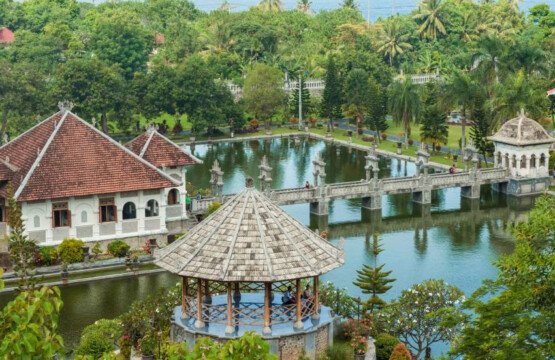
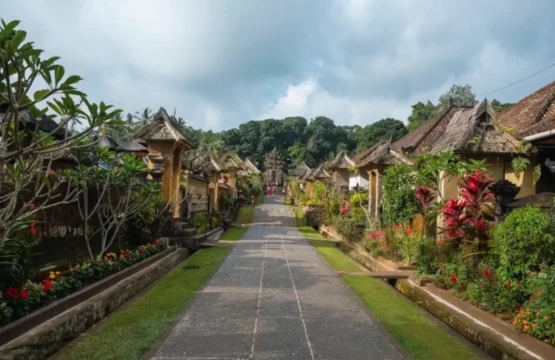


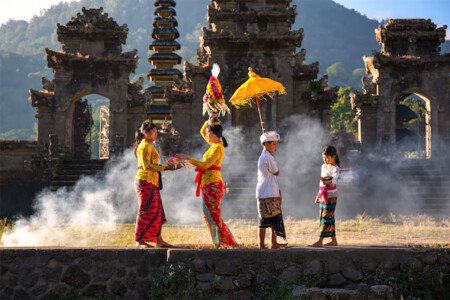



Join The Discussion